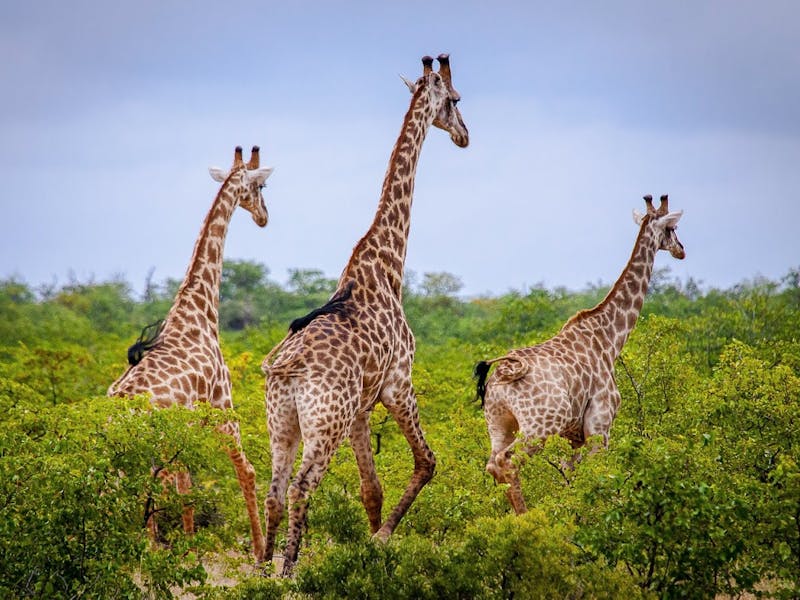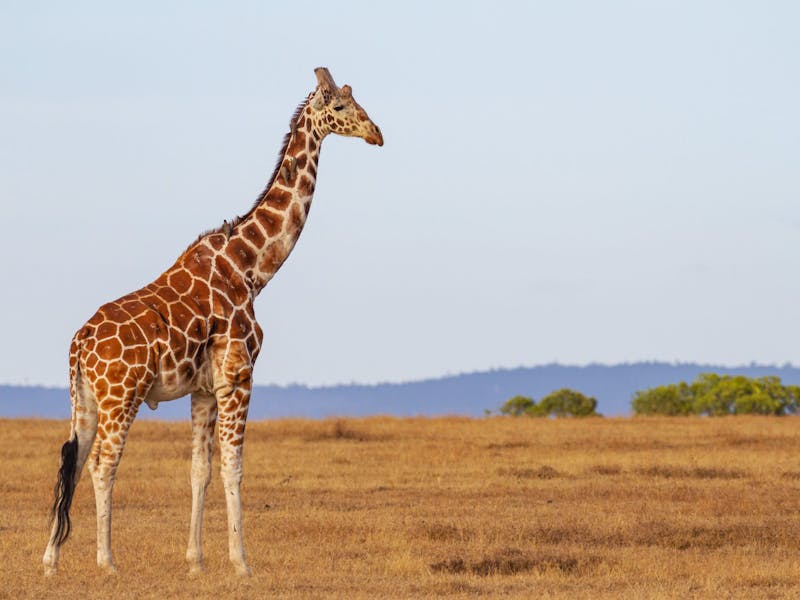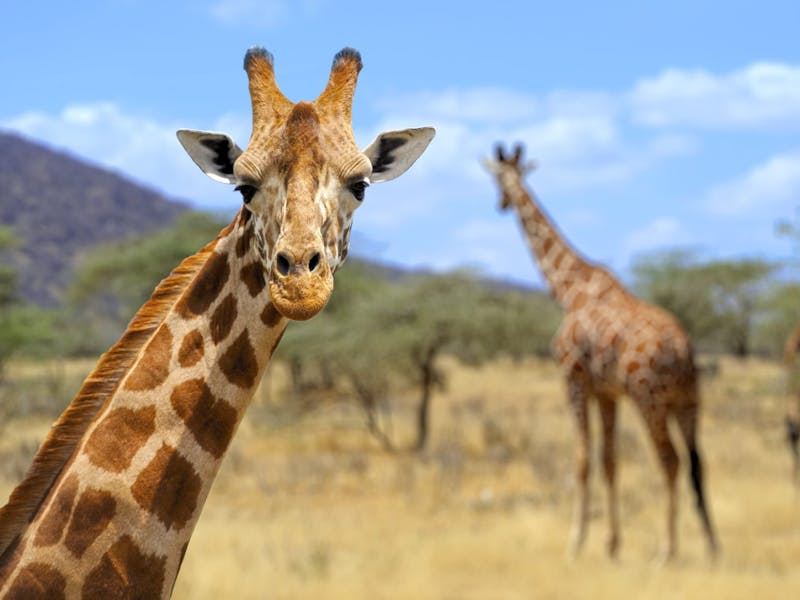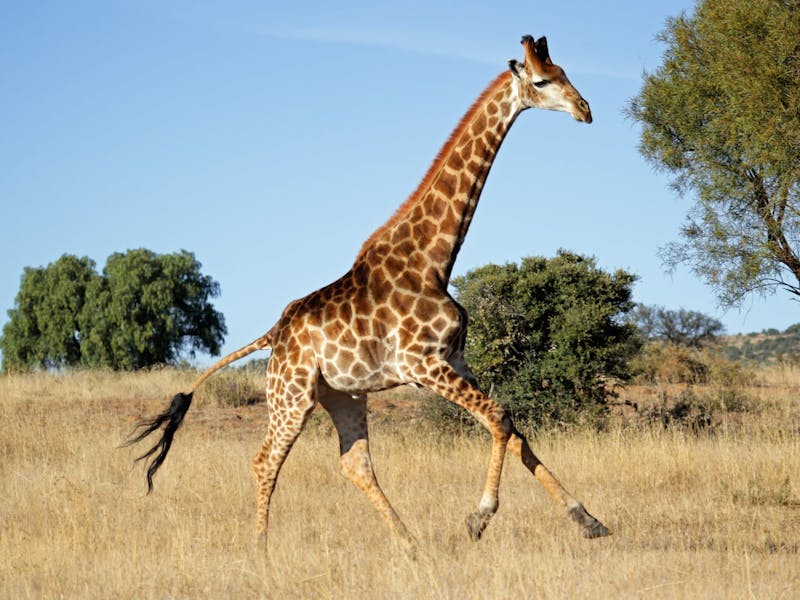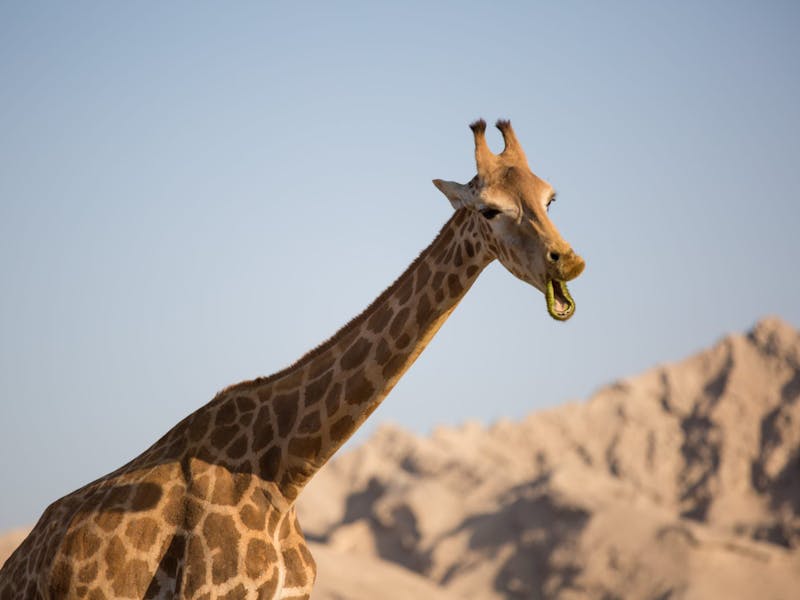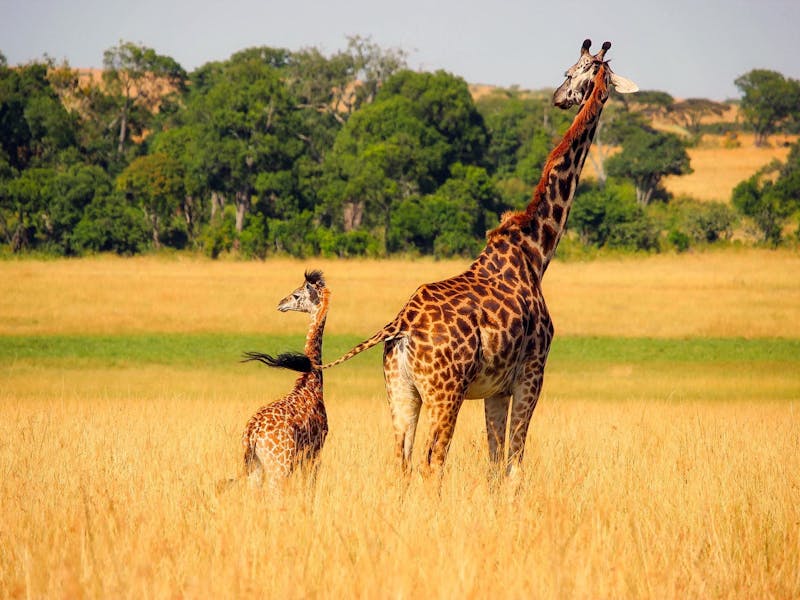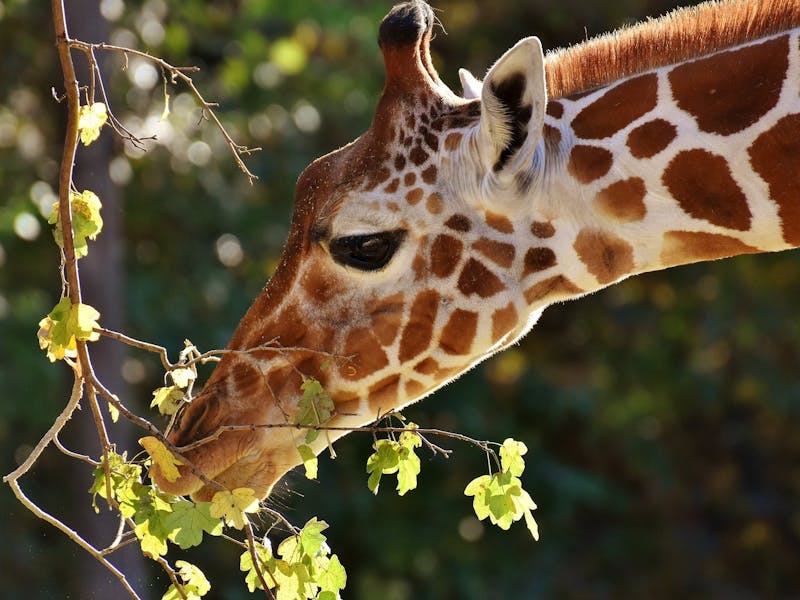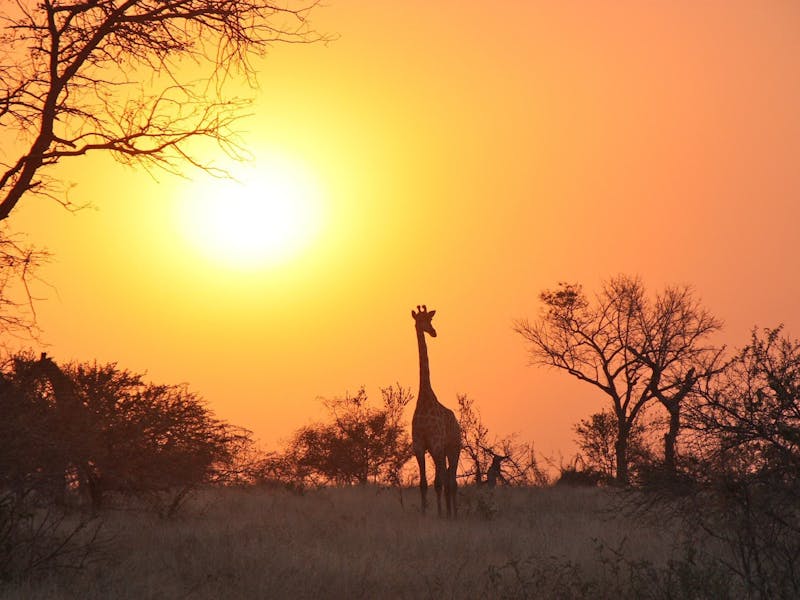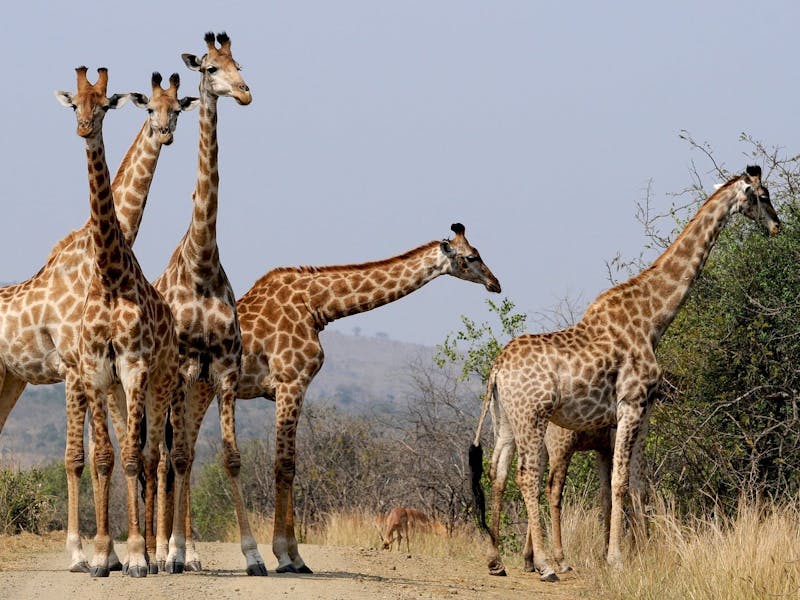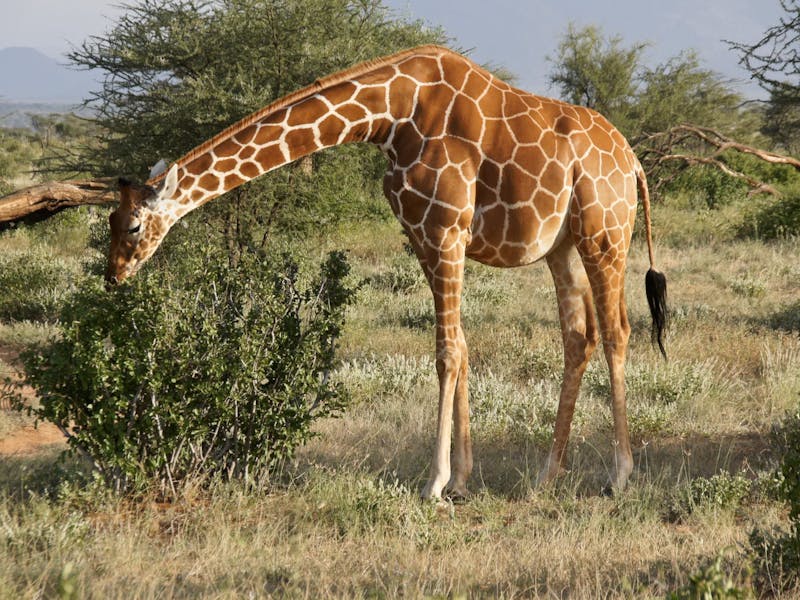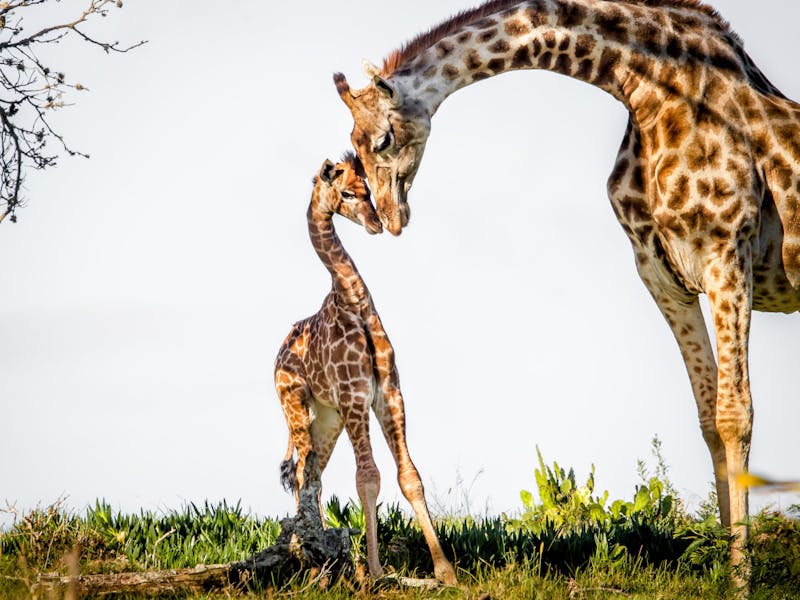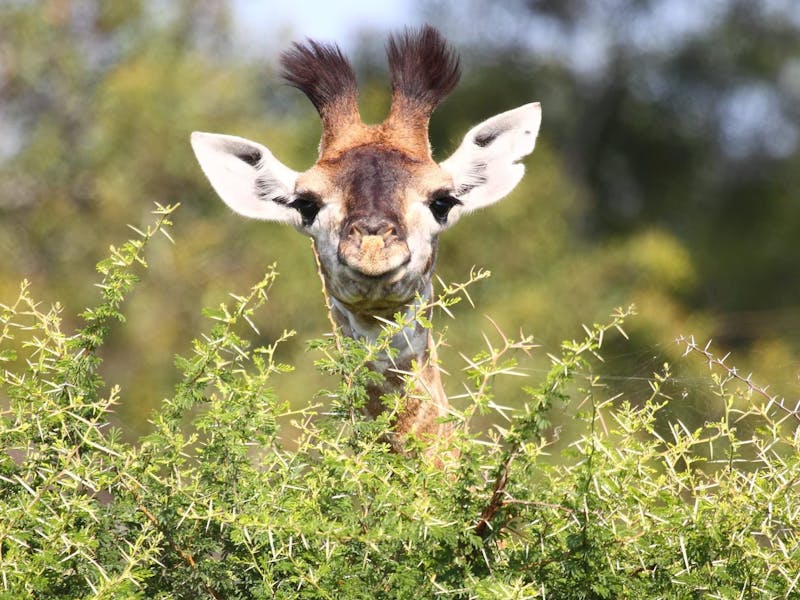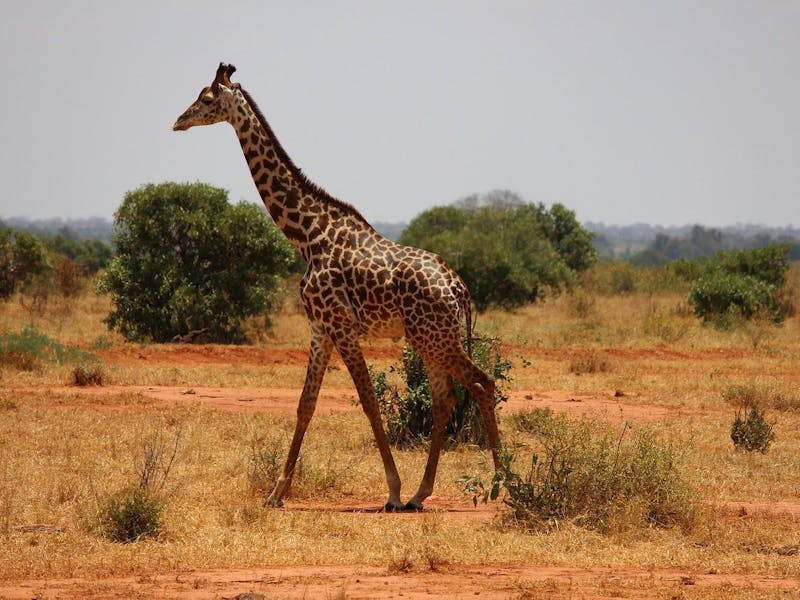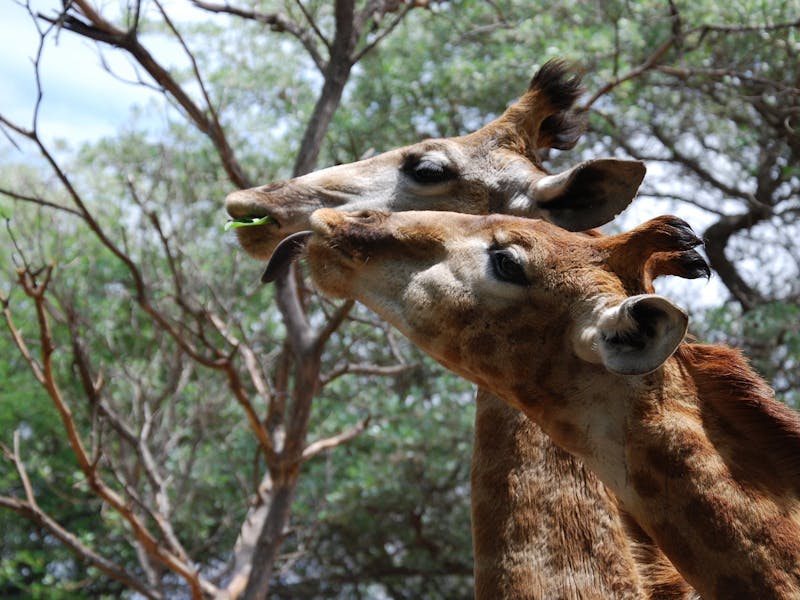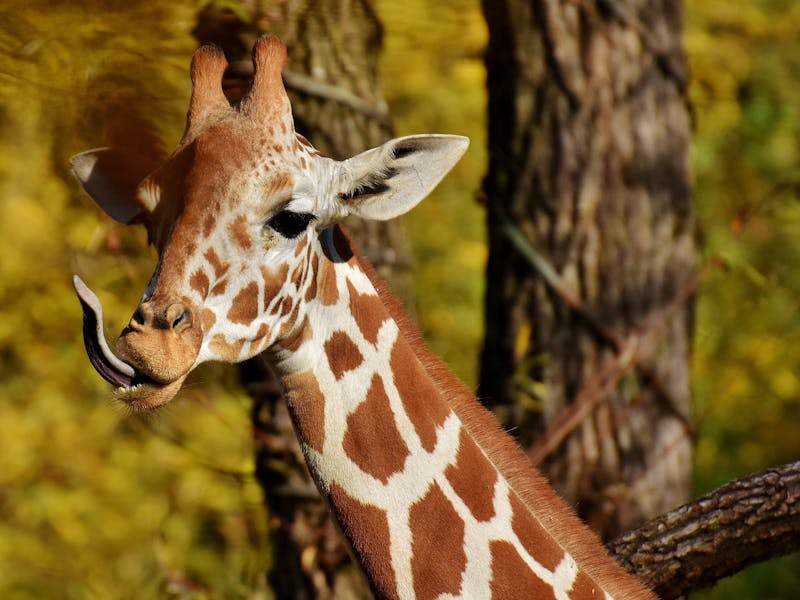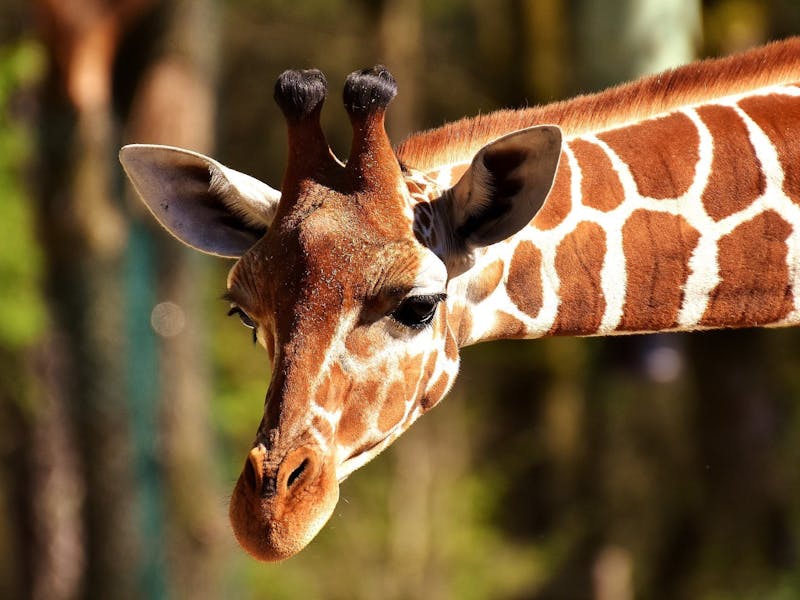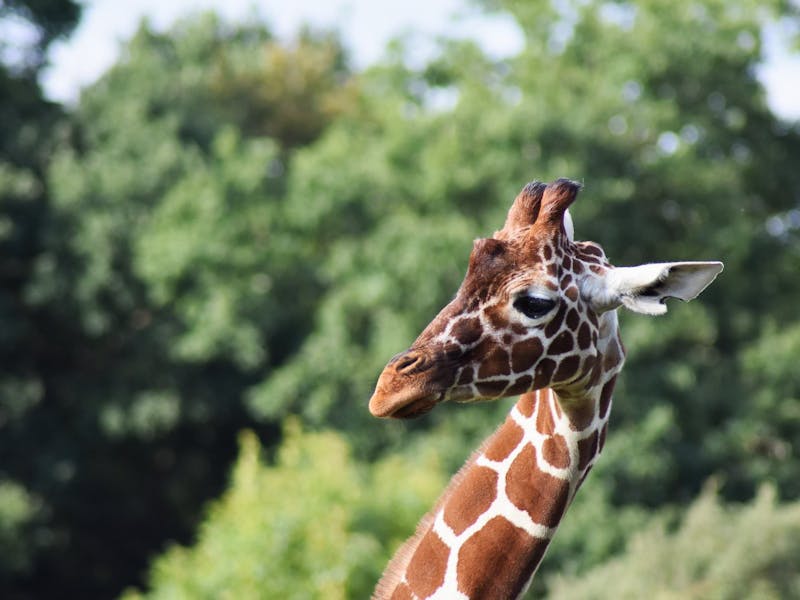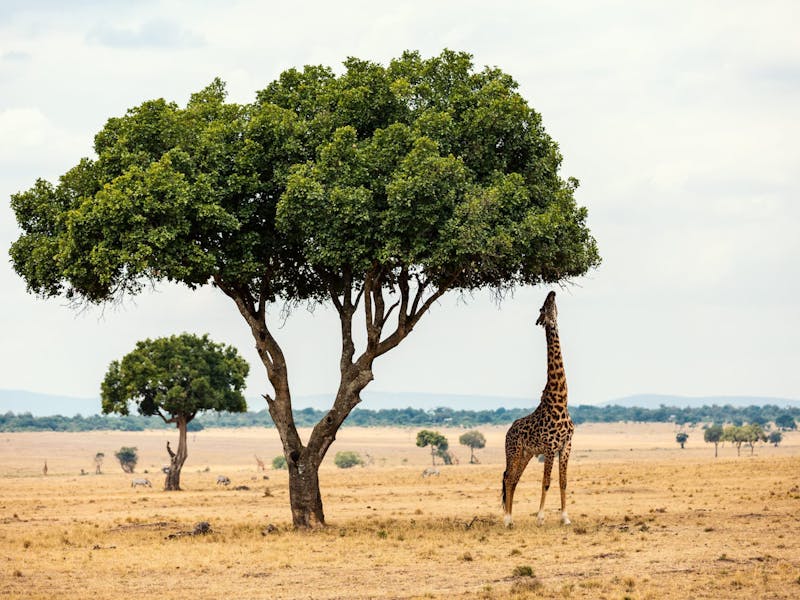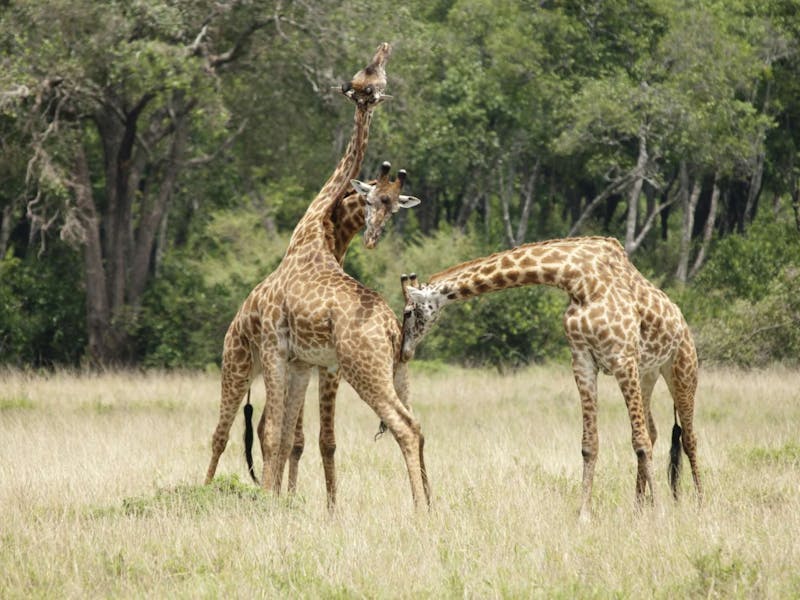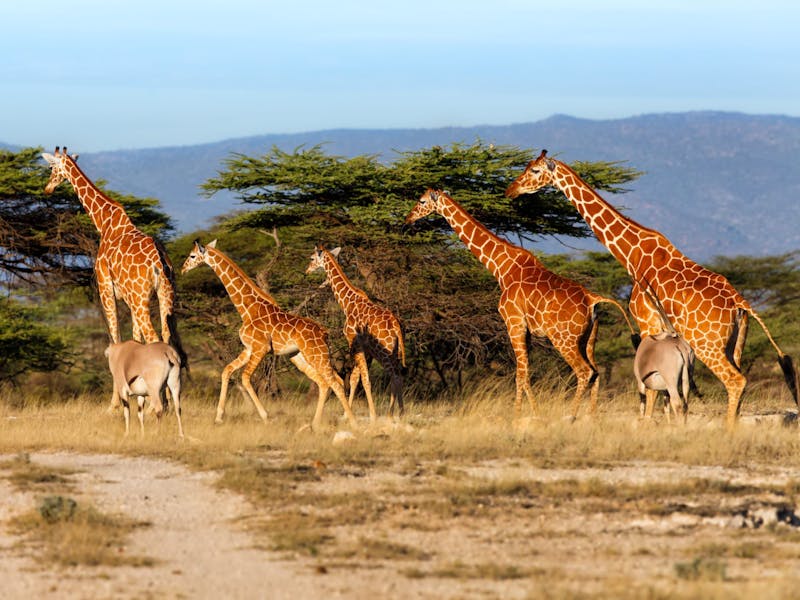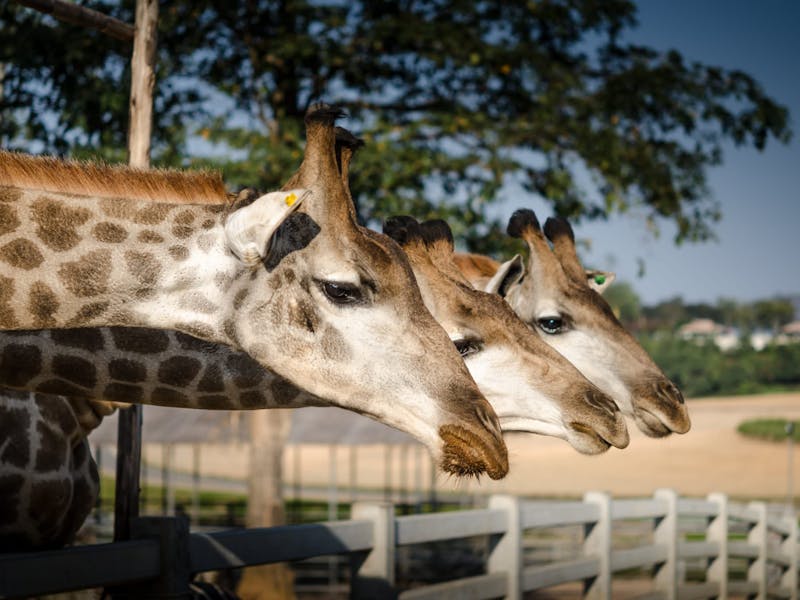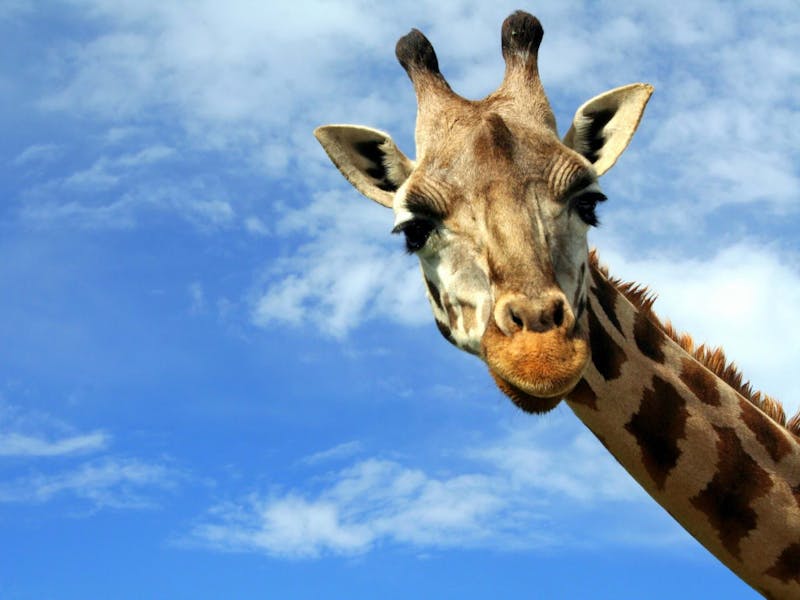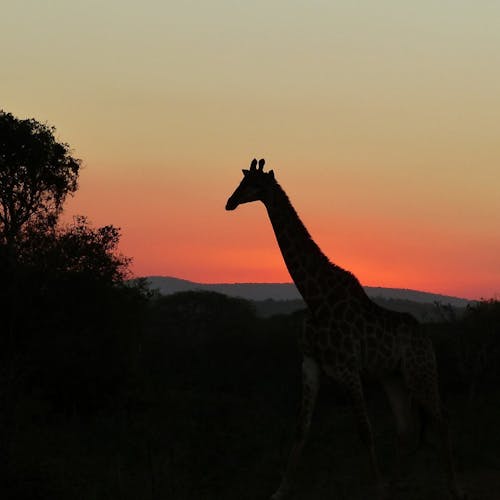
Do you know all about giraffe? (Infographic) (Quiz)
Giraffe can grow to 16 feet (5 metres) tall. They are quite social, largely silent, and appear gentle – yet their kick can kill a lion!
What would Africa be without the giraffe? Beautiful, yet awkward, the world’s tallest animal fascinates us all. Just looking at them makes us wonder: how tall are they? How do they give birth? What are those horn-looking things on their heads? What sound do they make? And so much more!
These odd-looking animals certainly stand out from the crowd, but did you know that they are in danger? They have recently been listed as Vulnerable by the IUCN. The gentle giants of the African savannah have been taken for granted for too long – even scientists haven’t studied them as much as other large African mammals until recently.
Our giraffe infographic is a one-stop spot to find out all about giraffe – what they eat, where they live, how big they are, their family matters, and what you can do to help conserve them.
You can also take our giraffe facts quiz at the bottom of the page if you want to test your knowledge!

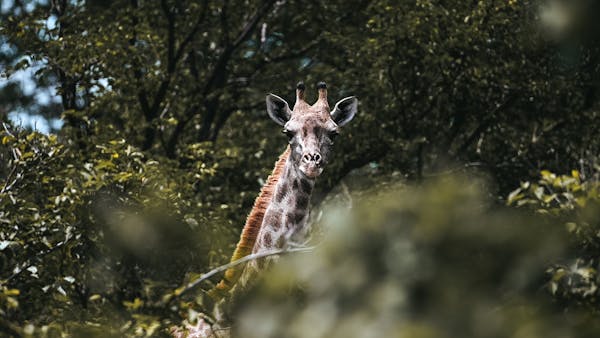
Giraffe quiz questions and answers
How tall is a giraffe?
Adult males, up to 5 metres; Adult females, up to 4.5 metres.
How much does a giraffe weigh?
800 - 1000kg
How fast can a giraffe run?
Up to 56 kilometres per hour
What sound does a giraffe make?
Giraffe rarely make a sound in the wild but will grunt or snort when alarmed or chased.
How long do giraffes live?
They can live up to 25 years in the wild
Are giraffes endangered?
Their status, according to the IUCN is Vulnerable. Scientists estimate that there are 68,000 of them left in the world, and their numbers are decreasing.
Where do giraffes live?
Only in Africa, in areas of savannah woodland, forest, shrubland, and semi-desert. They currently live in these African countries: Angola; Botswana; Cameroon; Central African Republic; Chad; Democratic Republic of the Congo; Ethiopia; Kenya; Mozambique; Namibia; Niger; Somalia; South Africa; South Sudan; Tanzania; Uganda; Zambia; Zimbabwe.
How many types of giraffe are there?
There is officially only one species of giraffe and nine subspecies, although new genetic studies suggest that these could be four distinct species and five subspecies.
Do giraffes mate for life?
No, males and females usually associate with each other in loose social groups. When she is receptive, the female will allow a particular male to mate with her. She does not necessarily always choose the same one.
How do giraffes mate?
Much like other mammals, the male mounts the female.
How long are giraffes pregnant?
457 days
How do giraffes give birth?
Standing up, so the calf will drop about a metre to the ground. Despite the long drop, giraffe calves can stand up within an hour of being born.
What is a baby giraffe called?
A calf – they are 1.5m tall and 100kg at birth.
How do giraffes lay down?
By folding their front legs under their bodies and their back legs forwards.
How do giraffes sleep?
They may sleep for a few minutes while lying down, but most of the time they take a nap while standing upright.
What do giraffes eat?
Mostly leaves, their favourite being the small green leaves on thorn trees. They will occasionally chew or suck on bones to obtain minerals as a supplement to their usual leafy diet.
How long is a giraffe’s tongue?
45 - 50cm
What colour is a giraffe’s tongue?
Bluish-purple
How do giraffes drink?
They spread their legs out to either side to drink, however, they do not need to drink regularly.
What are a giraffe’s horns called?
Ossicones – bony extensions of their skulls that are covered in skin. Male giraffe usually have bald tops on their ossicones, whereas females have furry tufts.
What do giraffes use their horns for?
Male giraffe fight each other for dominance by swinging their heads into each other’s flanks, which is why their ossicones are bald! This behaviour is called “necking”.
What is a group of giraffes called?
They often occur in loose social groups of males and/or females – a group of giraffe is known as a “journey” when they are moving, or a “tower” when they are standing still.
